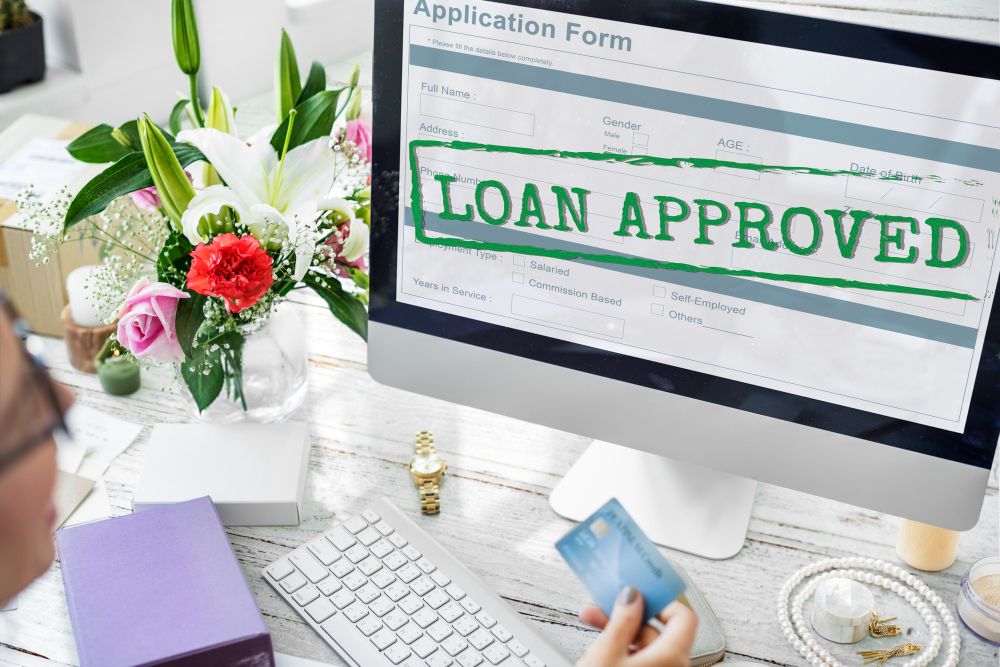Introduction:
For entrepreneurs, obtaining a loan is frequently the first significant step in starting a business. Funding is crucial whether you’re starting a local business, an internet store, or a coffee shop. The good news is that lenders offer a variety of startup loan options to meet your needs, ranging from banks and credit unions to SBA-approved lenders and online platforms.
You must present a well-defined business plan, accurate financial estimates, and evidence of your ability to repay debt in order to be eligible. Access to financing may be facilitated by options such as flexible term loans, microloans, and SBA 7(a) loans. We’ll explain how to get ready, where to apply, and what to anticipate in this guide so you can launch your company.
What Lenders Look for Before Approving a Loan
When you apply for a small business loan, lenders usually consider four main factors:
- Business plan – A simple plan showing your idea, target market, and how you’ll make money.
- Financial projections – Cash flow forecasts, startup costs, and expected revenue.
- Credit history – Your personal credit score plays a big role in approval, especially for new businesses.
- Collateral or guarantees – Assets or a co-signer that can secure the loan.
Types of Loans for Startups
Different financing options are available depending on how much you need and how quickly.
1. SBA Loans
The U.S. Small Business Administration (SBA) doesn’t lend money directly but guarantees loans through partner lenders. Popular programs include:
- SBA 7(a) loan – Flexible, with longer repayment terms.
- SBA Microloan – Up to $50,000, ideal for small startups.
- SBA Lender Match – Helps connect you with approved lenders.
2. Traditional Bank Loans
Banks and credit unions offer term loans or business lines of credit. These usually have lower interest rates but require strong credit and solid financials.
3. Online Lenders
Online platforms provide faster approvals, but rates may be higher. Good for small loans or short-term financing.
4. Business Credit Cards & Lines of Credit
Useful for early expenses and building business credit, though they carry higher interest if not managed carefully.
You may also like : Business loan calculator UKStep-by-Step: How to Apply for a Business Loan
Step 1: Estimate How Much You Need
List startup costs like equipment, licenses, rent, marketing, and operating expenses. Add at least 6 months of runway.
Step 2: Create a Business Plan
Keep it simple — outline your idea, market, pricing strategy, and how the loan will be used.
Step 3: Check Your Credit Score
Most lenders look at your personal credit report. Improving your score before applying increases approval chances.
Step 4: Gather Required Documents
Prepare:
- Personal ID
- Tax returns (2 years if available)
- Bank statements
- Financial projections and cash flow forecast
- Business registration documents
Step 5: Choose the Right Lender
- Use the SBA Lender Match tool for SBA-backed loans.
- Visit local banks or credit unions.
- Explore online lenders if you need quick approval.
Step 6: Submit Application & Follow Up
Apply online or in-person. Be ready to answer questions about how the loan will be used.
How to Improve Your Chances of Approval
- Offer collateral (equipment, property, savings).
- Add a guarantor or co-signer if your credit is new.
- Show pilot revenue or early customer traction.
- Reduce loan amount to match realistic startup needs.
Costs to Watch Out For
Before signing, check:
- Interest rate (fixed vs. variable)
- Repayment term (shorter term = higher payments)
- Origination fees and hidden charges
- Prepayment penalties (if you pay early)
You may also like: https://www.angellist.com/
Alternatives if You Can’t Get a Loan
If you don’t qualify right away, you still have options:
- Microloans (Kiva, community organizations)
- Business grants (local and government programs)
- Crowdfunding (Kickstarter, GoFundMe)
- Angel investors or friends and family
Loan Application Checklist
Before you apply, make sure you have:
- Personal ID and business registration
- Updated personal credit report
- 2 years of tax returns (if available)
- Bank statements (3–6 months)
- Business plan and financial projections
- Collateral or guarantor details (if needed)
Frequently Asked Questions (FAQs)
1. Can I get a loan with no business history?
Yes. Many lenders — especially SBA and microloan programs — approve new businesses if you have a solid plan and personal credit.
2. How much can I borrow for a startup?
It depends on the lender. SBA microloans go up to $50,000, while banks and SBA 7(a) loans can provide hundreds of thousands.
3. How fast can I get funding?
Online lenders may approve within days, while SBA or bank loans may take weeks.
4. Do I need collateral for a startup loan?
Not always, but collateral or a guarantor can improve your approval chances.
Conclusion
Getting a loan to start a business may feel overwhelming, but with the right plan and preparation, it’s completely doable. Focus on your business plan, keep financial documents ready, and choose the loan option that matches your startup’s needs. Whether it’s an SBA loan, a bank term loan, or an online lender, you can find funding that helps turn your idea into reality.

